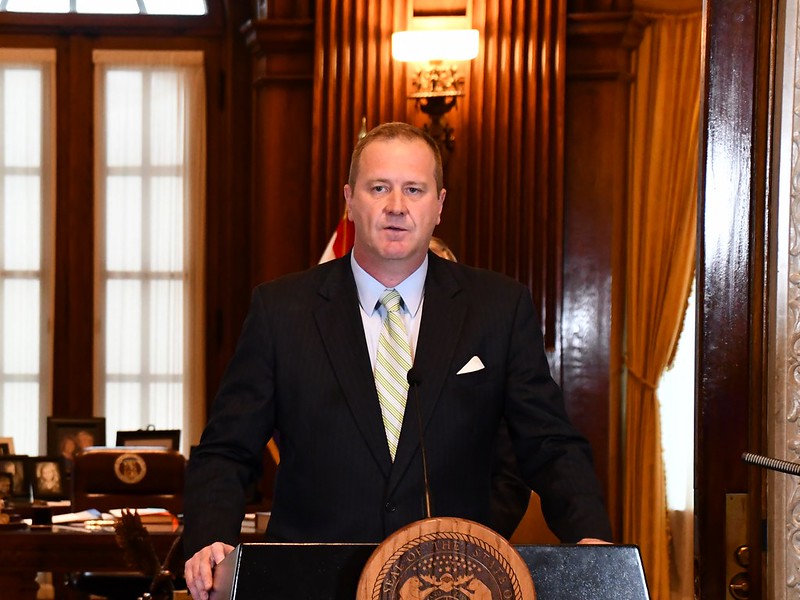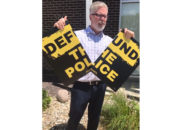JEFFERSON CITY, Mo. — The first batch of sexual assault kits sent to be tested by the Attorney General’s Office yielded nearly a dozen hits on the Combined DNA Index System (CODIS).
In all, 11 of the 16 CODIS-eligible kits returned hits through the national DNA database of known or repeat offenders. The Attorney General’s Office said it will relay the information to local law enforcement which will then determine the next steps. The office will also relay that it is “happy to fill in whenever needed,” Chris Nuelle, a spokesman for the attorney general, said.
“Despite challenges posed by COVID, we have continued this important work and are proud to announce the first CODIS hits resulting from kits shipped through the SAFE Kit Initiative,” Attorney General Eric Schmitt said. While this is still early in the process, we will work with police departments and local prosecutors to do what we can to hold offenders accountable and honor the courage of victims who have come forward.”
The hits came from the first batch of kits collected and sent to private labs in late January. Throughout the year, the Attorney General’s Office partnered with major metropolitan police departments, such as Springfield’s, to “host” and gather untested sexual assault kits from neighboring areas to be sent to the labs.
Out of the first batch collected, only 16 were CODIS-eligible. Other kits only had the victims’ DNA or did not have enough to create a usable profile.
The Missouri State Highway Patrol lab and the Attorney General’s Office will continue to do analysis on the kits before referring the results to local law enforcement, Nuelle said. The office will continue to ship kits to the lab and will provide additional updates as more hits and information is available.
Schmitt has made tackling Missouri’s rape kit backlog a priority while in office. Last year, an audit from the Attorney General’s Office identified more than 6,100 rape kits that remained untested across Missouri and flagged an additional 830 that could need to be readdressed.
“The SAFE Kit Initiative was one of the first major initiatives I launched when I entered office,” Schmitt said Wednesday. “Since then, my office has done yeoman’s work to inventory all untested sexual assault kits in the state of Missouri, develop an electronic tracking system, and ship untested sexual assault kits to the lab.”
Missouri continued to process rape kits — with safety precautions in place — even as the COVID-19 pandemic hit the state. The state contracted with a lab in Virginia, which had been deemed essential, where testing continued at a regular pace.
Gov. Mike Parson signed off on legislation mean to streamline rape kit testing earlier this year, as well. The bill, championed by Sen. Andrew Koenig, created a process for testing the kits and making it easier for victims to track the progress. The bill also mandated law enforcement agencies retain evidentiary collection kits for 30 years that have not been adjudicated. And except for in the cases of minors, unreported kits should be retained for at least five years.
In the State Senate I was proud to sponsor and pass the SAFE Kit legislation. I’m grateful for the work our Attorney General is doing to protect victims and hold offenders accountable. https://t.co/DfUFJgjpoy
— Andrew Koenig (@Koenig4MO) September 9, 2020
“It’s important to remember these kits are not just numbers,” Schmitt has said. “They are not just footnotes to the reporting of a crime. They represent real human beings, who have suffered, confronted their fears, reported the assault, and submitted a kit. A kit that may have been put on a shelf and remained untested — until now.”

Kaitlyn Schallhorn was the editor in chief of The Missouri Times from 2020-2022. She joined the newspaper in early 2019 after working as a reporter for Fox News in New York City.
Throughout her career, Kaitlyn has covered political campaigns across the U.S., including the 2016 presidential election, and humanitarian aid efforts in Africa and the Middle East.
She is a native of Missouri who studied journalism at Winthrop University in South Carolina. She is also an alumna of the National Journalism Center in Washington, D.C.
Contact Kaitlyn at kaitlyn@themissouritimes.com.





























